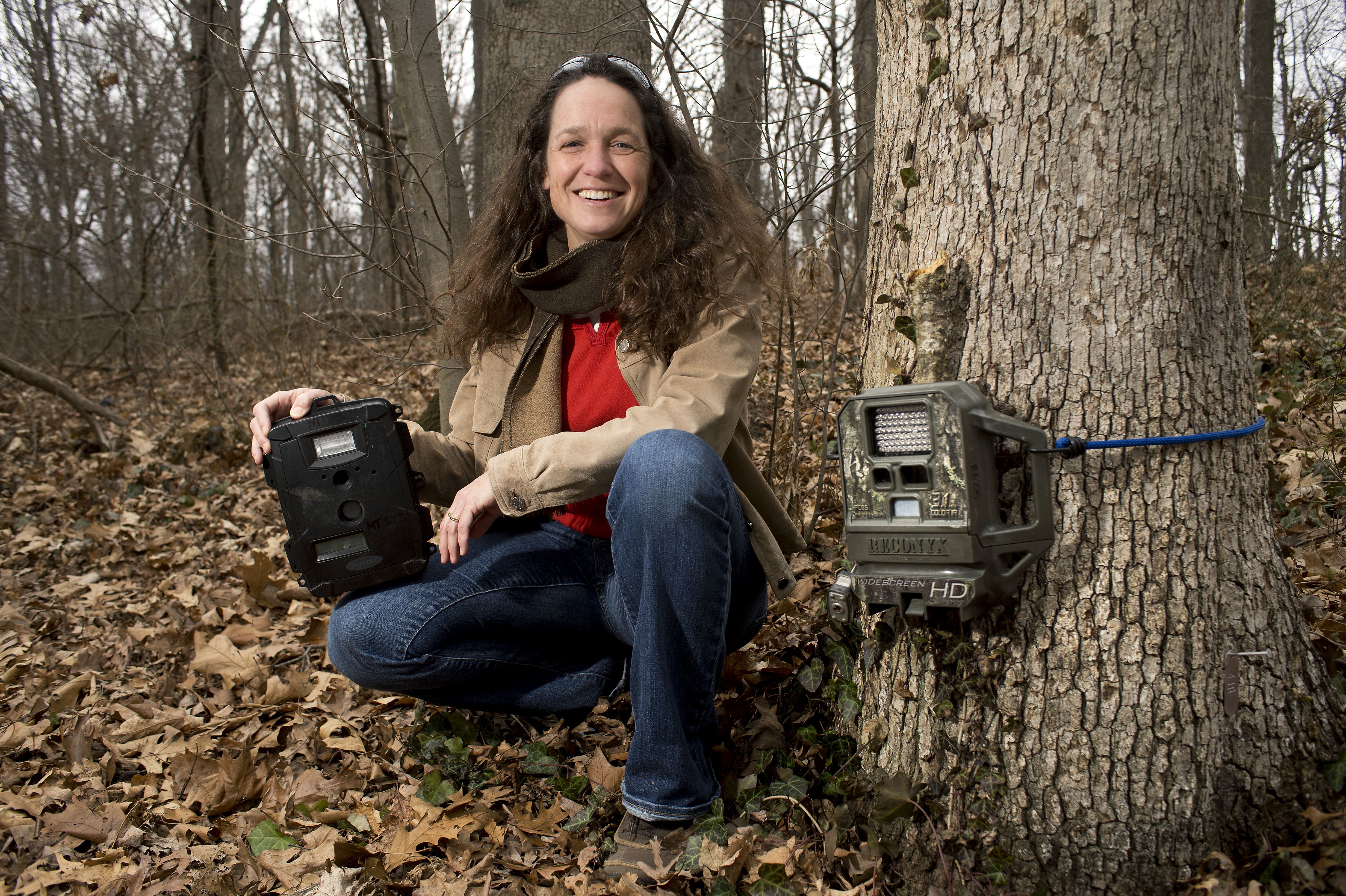Marcella Kelly honored with Philadelphia Zoo's Global Conservation Leader Award

Marcella Kelly, associate professor of wildlife in the College of Natural Resources and Environment, received the Global Conservation Leader Award from the Philadelphia Zoo at the zoo’s fourth annual Global Conservation Gala held in November.
This year’s gala served to spotlight issues facing big cats with an emphasis on one key threat — habitat loss due to deforestation caused by the expansion of nonsustainable palm oil plantations — and launched 2014 as the zoo’s “Year of the Big Cat.”
The award recognizes Kelly for her potential to create global impact on wildlife preservation through her work with big cats.
The zoo will provide $20,000 each year for five years to support her global cat conservation projects. An additional $5,000 each year will enable students in the Zoo Champions for Restoring Endangered Wildlife program to join Kelly on domestic or international cat conservation projects.
In receiving the award, Kelly told the audience, “I am so honored by this award recognizing my wildcat work and so thankful for the tremendous support that the Philadelphia Zoo has provided. Their exceptional support has enabled wildcat research and makes me optimistic that the world’s wildcat population will survive, especially in the case of tigers, which are the most endangered.”
“The College of Natural Resources and Environment is very proud of Marcella’s accomplishments and her ongoing work with big cats around the world,” said Dean Paul Winistorfer. “Her stellar research and conservation passion are making a difference, especially in regards to keeping the tiger population from extinction. Her efforts epitomize what our college is all about: advancing the science of sustainability.”
Kelly, a faculty member in Virginia Tech’s Department of Fish and Wildlife Conservation since 2001 who is also affiliated with the university’s Fralin Life Science Institute, has studied animals ranging from bats to bears, but much of her work focuses on large feline predators.
She has promoted the preservation of tigers in Bhutan, Nepal, and Indonesia by designing studies, advising graduate students, and teaching workshops about research techniques such as remote camera surveys, detector dog surveys, and data analysis.
She has also tracked the movements of jaguars, ocelots, and pumas in Belize with her research team using a combination of innovative and noninvasive techniques such as radio collaring, heat- and motion-sensored cameras, and former bomb and drug dogs to find animal scat for genetic analysis.
Throughout 2014, the Philadelphia Zoo will uphold the “Year of the Big Cat” theme through a commitment to cross-disciplinary creativity and resources designed to make significant contributions toward helping big cats.
“It is an honor to host an event that not only brings to light the positive, real-world global impact people can have on wild animals, but also sets a transformative course for the fate of endangered wildlife species,” said Vikram H. Dewan, president and CEO of the Philadelphia Zoo.
“As we continue on our forward-thinking trajectory and prepare to open an extension of the animal travel and exploration trail system for big cats in 2014, we are proud to be much-needed advocates for ‘deforestation-free’ palm oil and be part of the global solution for big cats,” he continued.
The Philadelphia Zoo, America’s first zoo and one of the region’s foremost conservation organizations, is home to nearly 1,300 animals, many of which are rare and endangered. By connecting people with wildlife, the zoo seeks to create joyful discovery and inspire action for animals and habitats.
Kelly earned her bachelor’s degree in wildlife and fisheries biology and her doctorate degree in ecology from the University of California, Davis.
Written by Samantha Huff of Christiansburg, Va., a senior majoring in English in the College of Liberal Arts and Human Sciences




